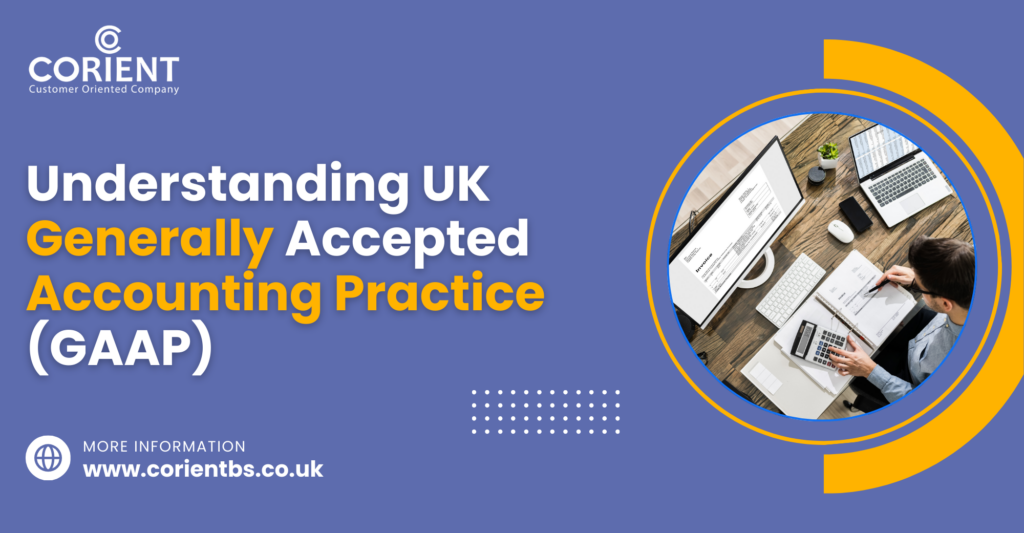
Things You Need to Know About FRS 102
You and your competitors have heard and known about UK GAAP, a set of guidelines or principles that you and your clients must follow while making their financial statements. GAAP is vast and contains multiple financial reporting standard protocols, including the important FRS 102 (Financial Reporting Standards). In this blog, we will focus on FRS 102, its importance, and its impact on UK GAAP.
FRS 102 is a financial reporting standard applicable in the UK and the Republic of Ireland. This standard fixes the recognition and measurement rules and disclosure requirements for businesses that apply it. The Financial Reporting Council (FRC) is responsible for reviewing and maintaining FRS 102, and it must be noted that this standard is subject to changes as per the stakeholder’s requirements.
FRS 102 is an extensively adopted accounting standard in the United Kingdom and Ireland, but it is not the only one an entity can apply. Businesses can adopt other accounting standards, such as FRS 105, FR101, FRS 104, and IFRS.
Before FRS 102, multiple accounting standards existed in the UK and Ireland, but now there is a single standard, thus reducing complexity. The FRS 102 standard applies to an entity’s financial statements and financial reporting and is also applicable to entities that are not considered profit-oriented. To summarise, FRS 102 applies to businesses and entities applying EU-adopted IFRS, FRS 101, or FRS 105.
What is UK GAAP?
The Financial Reporting Council publishes and updates the UK GAAP, a set of accounting principles and guidelines businesses in the UK should follow when preparing their financial reports and accounts.
Once businesses prepare reports or when accounting practices prepare balance sheets and profit and loss statements on their behalf according to UK GAAP, they must submit them to HMRC and Companies House.
Thanks to UK GAAP it has helped accounting and financial teams because of its positive impact on the following activities:
- Measuring of economic activity
- Putting together economic information and summarising it
- Monitoring measurements regularly
- Disclosing information about an activity
Key Differences Between Existing UK GAAP and FRS 102
The UK GAAP is a collection of accounting guidelines and principles that must be followed when making financial statements, and the addition of the FRS 102 standard has been one of the most significant ones. The FRS 102 standard has undergone a demanding development process. After its introduction, it has significantly impacted the financial statements created by businesses and accounting practices based in the UK and following the UK GAAP.
The FRS 102 standard has brought changes not only in the format of financial statements but also in the numbers compared with the old GAAP. These changes are:
- Criteria for recognising certain assets and liabilities
- Measurement basis of items
- How some gains and losses are dealt with
We understand that tracking these changes takes work. Tracking is time-consuming, and understanding the updates in the UK GAAP or its protocol takes a lot of time. In this situation, accounting practices like yours can get a helping hand from professionals, i.e., accounting outsourcing service providers like Corient, but more about that latter.
When you compare the old UK GAAP with the one included with the FRS 102 standard, you will notice differences. These differences are as follows:
Cash Flow Statement
FRS 102 does not exempt cash flow statements from preparation but has introduced some presentational changes. Under FRS 102, the prepared cash flow statement will have three classifications: operating activities, investing activities, and financing activities.
Correction of Errors
Under FRS 102, where an error is material, it will be corrected through a prior-period adjustment. Hence, more errors are expected to be corrected through a period adjustment.
Stock Valuation
Before FRS 102, SSAP 9 allowed the use of the LIFO method of stock valuation. However, with FRS coming into force, it has outlawed the LIFO method. Hence, those businesses or entities that employ the LIFO method will have to choose between FIFO or average cost.
Investment Property
Under SSAP 19, fair value gains and losses are taken directly to the revaluation reserve. However, under FRS 102, gains and losses related to fair value fluctuations are taken directly to profit or loss. It is important to note that under FRS, fair value gains cannot be distributed as dividends to shareholders.
Intangible Assets and Goodwill
The economic life of intangible assets and goodwill under FRS 10 is limited to periods of 20 years or less. This can be refuted, and economic life can be made longer or infinite in certain circumstances. However, under FRS, the useful economic life of intangible assets and goodwill is 5 years or less if you cannot estimate the intangible assets or goodwill.
Leasing
In SSAP 21, leases are treated as finance leases when the current value of the minimum lease payments equals 90% or more of the just value of the leased asset. However, under FRS, there is no such 90% guideline. In its place, the lease is usually indicative of a finance lease when all of the present value of the minimum lease payments is equal to the fair value of the leased asset.
Deferred tax
FRS 19 excludes deferred tax on revalued assets if no binding sale agreement exists and the gain or loss. Under FRS, deferred tax is recognized on revalued assets, even without a binding sale agreement. The rate used in calculating the deferred tax is the rate that would apply to the disposal of the asset.
Grants
SSAP 4 requires matching grant income with related expenses in the profit and loss account. Under FRS, entities can choose to recognize grant income. Recognize grant income by either meeting performance-related conditions or matching it to related expenses.
Conclusion
The main objective of this blog is to explain FRS 102, which is part of UK GAAP, in the simplest possible way and how it impacts how you will make financial statements for your clients. However, we can understand the complexities involved and know that it can potentially divert your attention away from other important accounting tasks. We suggest you outsource this complex but important work to a professional accounting outsourcing service provider like Corient to avoid such distractions and reduce your workload.
Our highly professional accountants are well-trained in the latest accounting standards and updated UK GAAP, including FRS. Our accountants use advanced software, boosting accuracy, saving time, and enhancing productivity. For more information about our services or to share your requirements, please contact us via our website.

